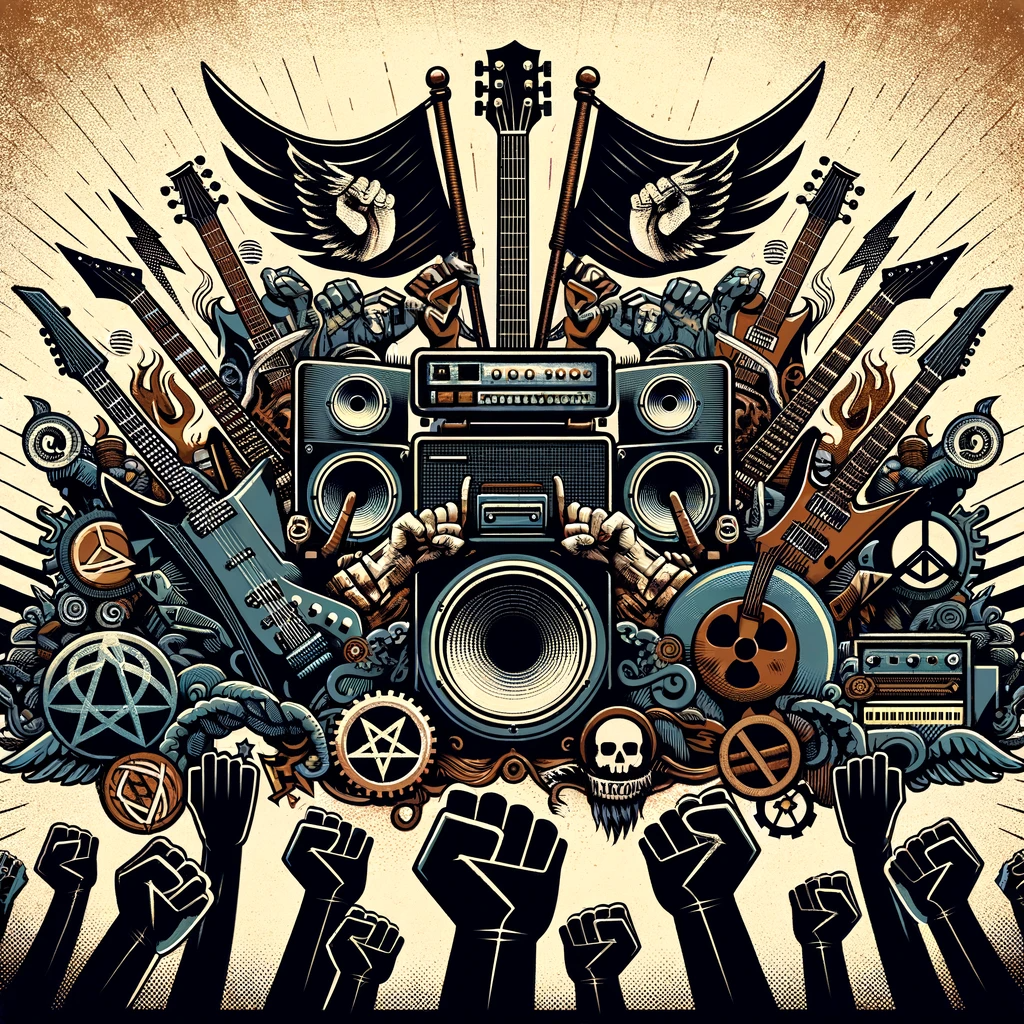Introduction
Metal music, often perceived as just a loud and aggressive genre, has played a significant role in various social and cultural movements throughout its history. This article examines how metal has been a powerful platform for expressing a range of ideologies, giving a voice to the marginalized, challenging norms, and participating in broader socio-political conversations.
Metal and Political Expression
- Thrash Metal’s Social Commentary: In the 1980s, thrash metal bands like Metallica, Megadeth, and Anthrax used their music to comment on social issues, including war, corruption, and environmental concerns.
- Black Metal and Nationalism: Some black metal bands in the 1990s, particularly in Norway, intertwined their music with nationalistic and sometimes controversial ideologies, sparking debates about the role of music in political discourse.
Metal as a Voice for the Marginalized
- Doom and Gothic Metal’s Exploration of Mental Health: Bands in these subgenres have often used their music to explore themes of depression, loneliness, and existential angst, giving a voice to mental health struggles.
- Nu-Metal and Social Alienation: In the late 1990s and early 2000s, nu-metal bands like Korn and Linkin Park addressed themes of alienation, bullying, and family dysfunction, resonating with a younger, disaffected generation.
Metal and Cultural Movements
- Heavy Metal in the Middle East: In regions like the Middle East, heavy metal has been a form of cultural resistance, challenging conservative norms and offering a form of expression for younger generations.
- Feminism in Metal: The rise of female musicians in metal, from Doro Pesch to Arch Enemy’s Angela Gossow, has challenged the genre’s male-dominated image and contributed to broader feminist movements within music.
Environmentalism and Metal
- Eco-Metal: Bands like Gojira have used their platform to advocate for environmentalism, addressing issues like ocean conservation and climate change in their music.
Metal as a Platform for Global Issues
- Globalization of Metal: As metal has spread globally, bands from diverse cultures have used the genre to address local and global issues, from indigenous rights to global poverty, adding a multicultural dimension to metal’s social commentary.
Challenges and Criticisms
- Controversy and Misinterpretation: Metal’s engagement with social issues has not been without controversy, with some bands’ messages being misinterpreted or criticized for inciting negative behavior.
- The Fine Line Between Expression and Offense: Some bands have been accused of crossing the line from artistic expression into hate speech or inciting violence, leading to debates about censorship and artistic freedom.
Conclusion
Metal music’s intersection with social and cultural movements highlights its significance as a platform for expression and ideology. Far from being a monolithic genre focused only on sound and fury, metal has proven to be a dynamic and influential medium for addressing a wide array of social issues, giving voice to those on the margins, and participating in significant cultural conversations. As the genre continues to evolve, its role in social and political discourse is likely to expand, reflecting the changing landscapes of our global society.


Leave a Reply